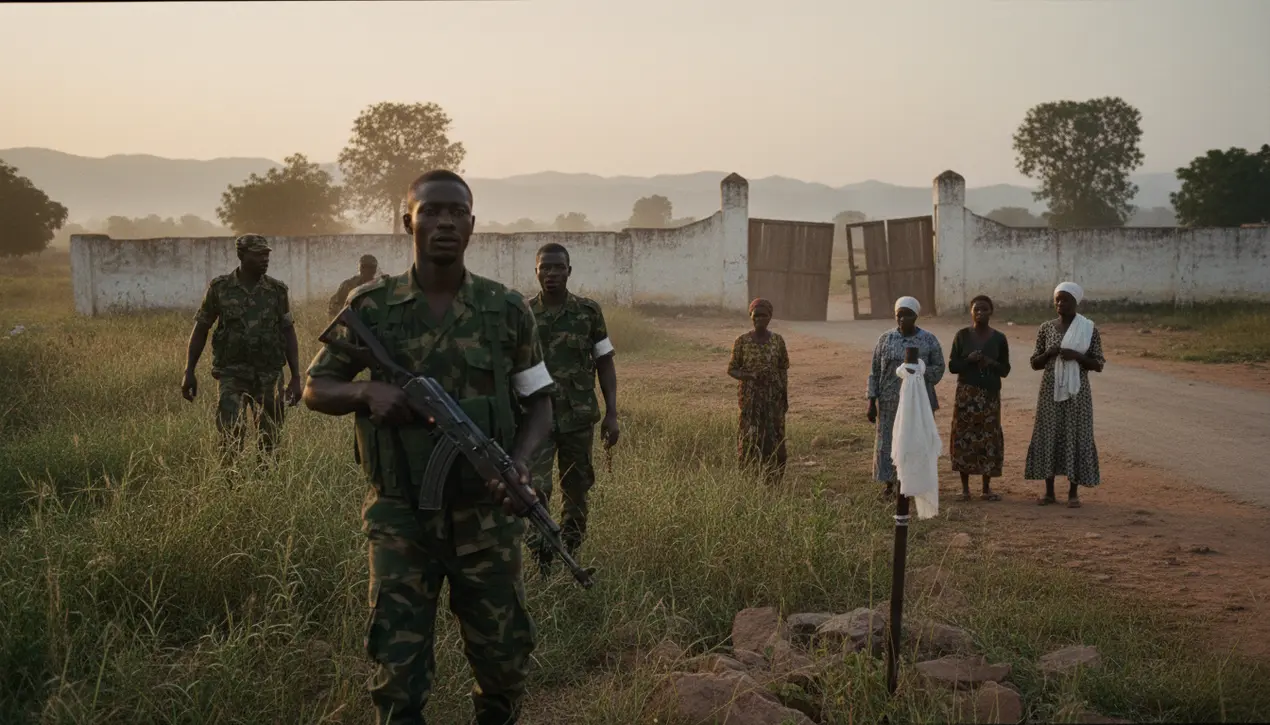
Politicshuman rightsPolitical Prisoners
Security forces search for pupils abducted from Nigerian Catholic school.
EM
Emma Wilson
1 day ago7 min read5 comments
In a chilling echo of past atrocities that have scarred Nigeria's educational landscape, security forces are currently engaged in a desperate, large-scale search operation following the brazen abduction of an undisclosed number of pupils from a Catholic school. This latest attack, targeting one of the nation's few remaining sanctuaries of learning and moral instruction, sends a shiver of collective dread across a country already weary from a decade-long insurgency and rampant criminal kidnappings for ransom.The precise location and timeline remain fluid as information trickles in from conflicted zones, but the pattern is devastatingly familiar: armed groups, often moving with impunity through remote areas, storm educational institutions under cover of darkness or in the early morning, seizing children as young as five to use as bargaining chips in a brutal economy of human suffering. The psychological toll on the families—parents waiting in agonizing silence, communities organizing vigilante patrols, and the children themselves, thrust into a nightmare of uncertainty and fear—is immeasurable and represents a profound failure of the state to protect its most vulnerable.This incident is not isolated; it follows a grim chronology that includes the 2014 Chibok abduction of 276 schoolgirls by Boko Haram, which sparked the global #BringBackOurGirls campaign, and the 2021 kidnapping of over 300 students from a school in Katsina. Each event deepens the trauma, forcing a painful national conversation about security, governance, and the very future of a generation being educated under the shadow of the gun.While official statements promise a swift resolution, the reality on the ground is often one of protracted negotiations, with families sometimes forced to sell land and livestock to meet exorbitant ransom demands, thereby funding the very criminal enterprises that terrorize them. The international community watches with a familiar, weary concern, but tangible action remains elusive, leaving Nigerian forces to grapple with vast, ungoverned territories and highly mobile, adaptive non-state actors.The long-term consequences are catastrophic: increased dropout rates, particularly among girls; the closure of schools in high-risk regions, creating educational deserts; and the entrenchment of a culture of fear that stifles development and normalizes violence. Until systemic issues—corruption, poverty, and a lack of adequate security infrastructure—are addressed with the urgency this human rights crisis demands, these scenes of frantic searches and grieving communities will continue to replay, marking a tragic and seemingly endless cycle in Nigeria's modern history.
#Venezuela
#María Corina Machado
#Nobel Prize
#opposition leader
#fugitive
#human rights
#featured
Stay Informed. Act Smarter.
Get weekly highlights, major headlines, and expert insights — then put your knowledge to work in our live prediction markets.
Related News
Comments
Loading comments...
© 2025 Outpoll Service LTD. All rights reserved.